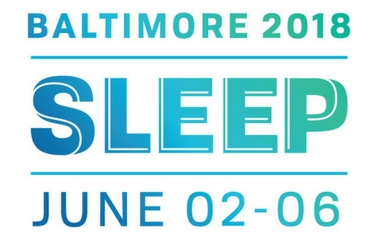BALTIMORE – Preliminary results from a new study suggest that several sleep-related symptoms are associated with decreased work productivity.
Everyone experiences some loss of productivity from a range of sources, such as competing demands, stress, or interpersonal issues. This study evaluated whether people with certain sleep problems experienced more productivity loss than those without those problems.
Results show that insomnia was the sleep problem that demonstrated the greatest impact on work productivity. Data analysis found that those with moderate-severe insomnia experienced more than double the productivity loss (107 percent more) compared to someone without insomnia.
Other sleep complaints were relevant as well. For example, those with even mild insomnia experienced 58 percent more productivity loss, those who reported problems with daytime sleepiness experienced 50 percent more productivity loss, and those who snored regularly (a sign of sleep apnea) experienced 19-34 percent more productivity loss, compared to those who didn’t snore.
Often, people sleep less with the hopes of being more productive. This study shows that this is not the case – compared to those who regularly got 7 to 8 hours of sleep, those who reported getting 5 to 6 hours experienced 19 percent more productivity loss, and those who got less than 5 hours of sleep experienced 29 percent more productivity loss.
“Many people believe that in order to get more done, they need to sacrifice sleep,” said senior author Michael Grandner, PhD, MTR, director of the Sleep and Health Research Program and assistant professor of psychiatry at the University of Arizona College of Medicine in Tucson. “This study shows that, quite to the contrary, poor sleep is associated with lower productivity in general, and specifically across a wide range of areas.”
The study utilized data from the Sleep and Healthy Activity, Diet, Environment, and Socialization (SHADES) study, including 1,007 adults between the ages of 22 and 60 years. Work productivity was evaluated with the validated Well-being Assessment of Productivity (WBAP) tool, which includes items assessing factors such as health, worries, depression/anxiety, and financial stress. Participants reported how much sleep they usually get at night on weekdays or work days. Other assessment tools included the Insomnia Severity Index and Epworth Sleepiness Scale. Results were adjusted for age, sex, race/ethnicity, education, income, and work hours.
“In a real-world sample of about 1,000 people, those who were sleeping less, and those who were not getting good quality sleep, were actually at a disadvantage when it comes to productivity,” said lead author Robert Yang, a student research assistant in the Sleep and Health Research Program led by Grandner. “This is further evidence that sleep is not wasted time — it’s wisely invested time!”
According to the authors, the findings emphasize that sleep should be considered an important element in workplace health.
The research abstract was published recently in an online supplement of the journal Sleep and will be presented Monday, June 4, in Baltimore at SLEEP 2018, the 32nd annual meeting of the Associated Professional Sleep Societies LLC (APSS), which is a joint venture of the American Academy of Sleep Medicine and the Sleep Research Society.
The SHADES study was funded by the National Institute of Environmental Health Sciences at the National Institutes of Health.
Abstract Title: Work Productivity Loss Associated with Sleep Duration, Insomnia Severity, Sleepiness, and Snoring
Abstract ID: 0189
Presentation Date: Monday, June 4
Poster Presentation: 5 p.m. to 7 p.m., Board 300
Presenter: Robert Yang
For a copy of the abstract or to arrange an interview with the study author or an AASM spokesperson, please contact AASM Communications Coordinator Corinne Lederhouse at 630-737-9700, ext. 9366, or clederhouse@aasm.org.
About the American Academy of Sleep Medicine
Established in 1975, the American Academy of Sleep Medicine (AASM) improves sleep health and promotes high quality, patient-centered care through advocacy, education, strategic research, and practice standards. The AASM has a combined membership of 10,000 accredited member sleep centers and individual members, including physicians, scientists and other health care professionals. For more information about sleep and sleep disorders, including a directory of AASM-accredited member sleep centers, visit www.sleepeducation.org.





